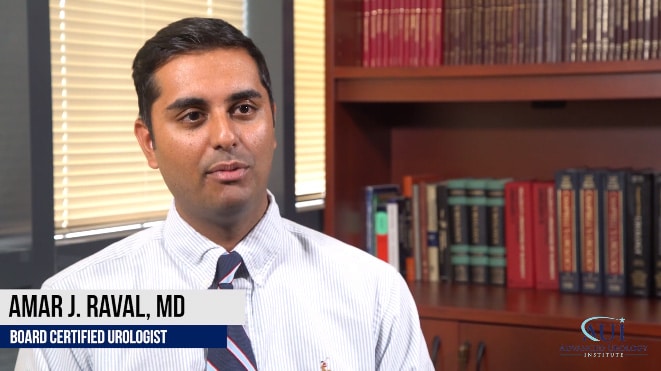Should You Be Screened for Prostate Cancer
Prostate cancer is a common cancer that affects the walnut-shaped male prostate gland. As with most cancers, early detection is an important part of any successful treatment. The most common way prostate cancer is detected is through prostate cancer screenings during a patient’s appointment with a urologist. According to Dr. Amar Raval, “Screenings are important, along with a digital rectal exam, because prostate cancer continues to be the number one cancer found in men.”
Should you be screened for prostate cancer? If you can answer yes to one or more of the following conditions, then you may need to be screened:
• If you are between the ages of 55 and 69.
• If there is a history of prostate cancer in your family.
• If you are African-American.
• If you have a pre-existing medical condition that makes treatment difficult.
 These factors are known to increase the risk of developing prostate cancer, and it is recommended that someone who has one or more of these conditions is screened at least once a year.
These factors are known to increase the risk of developing prostate cancer, and it is recommended that someone who has one or more of these conditions is screened at least once a year.
There are two main types of prostate cancer screening tests that a patient may receive. The most common is a digital rectal examination (DRE). For this exam, the health care provider puts on a glove and inserts a finger into the patient’s rectum to feel for any abnormalities on the prostate that can be attributed to cancer. The other screening is a prostate specific antigen (PSA) blood test. This blood test checks the PSA level in the blood, as someone with prostate cancer will have an elevated PSA level.
If one of these tests leads to a prostate cancer diagnosis, the urologist will want to identify what kind of prostate cancer it is in order to develop the best treatment plan. Non-aggressive cancers may not necessarily need treatment and can be monitored with active surveillance, which means watching the cancer to make sure it doesn’t turn aggressive and spread. In cases where the cancer is of intermediate or high risk, early identification from a screening test can help make sure that the treatment used on the cancer has the best chance for success.
If you believe it is time for you to start being screened for prostate cancer, then you should have a conversation with your urologist. Early detection can be a life saver. For men who are concerned about prostate cancer, the Advance Urology Institute is an excellent place to begin screening.

